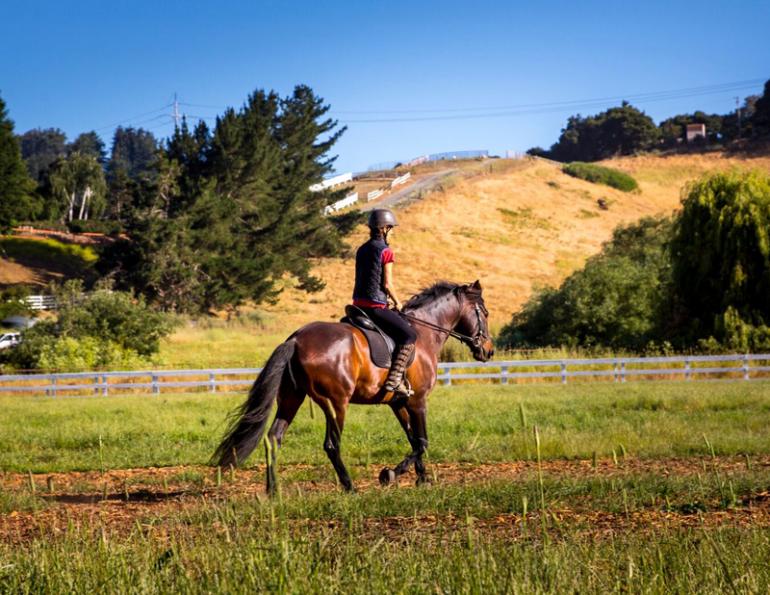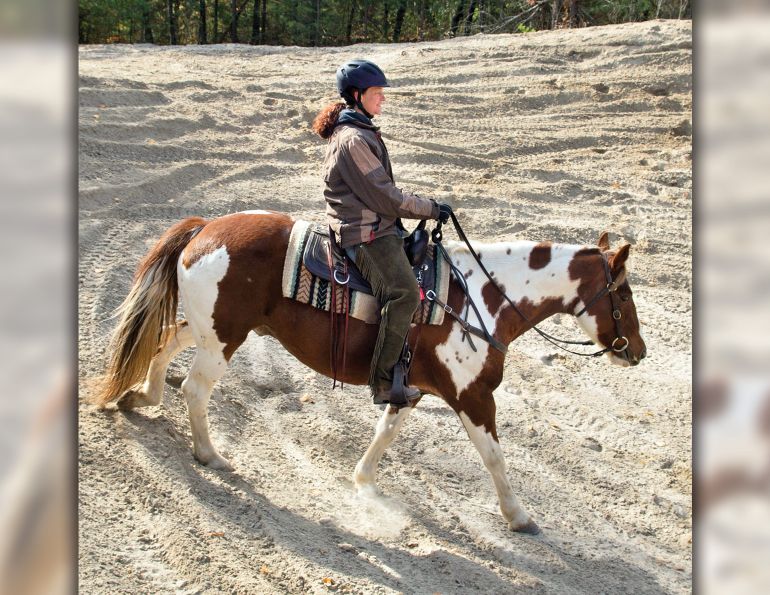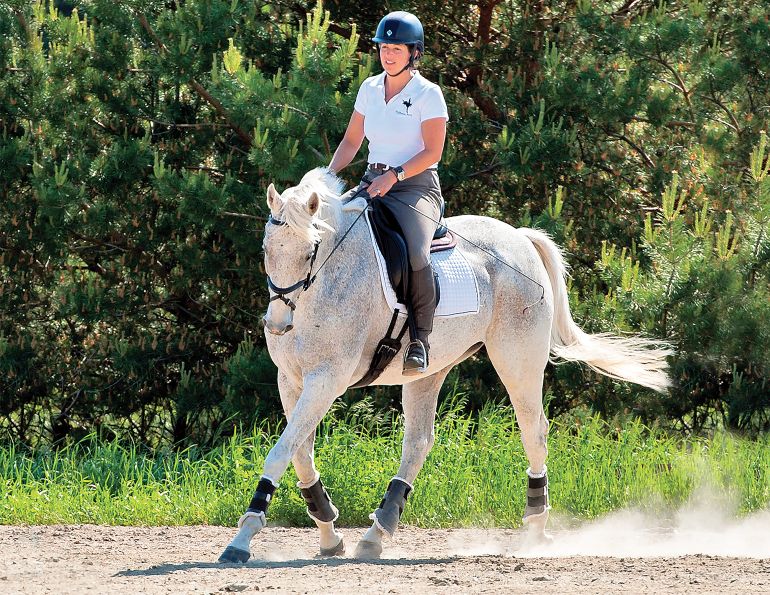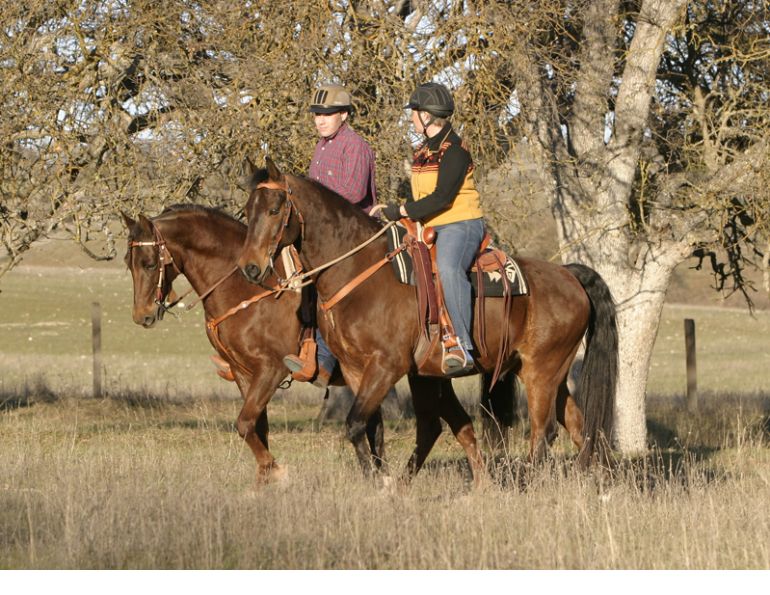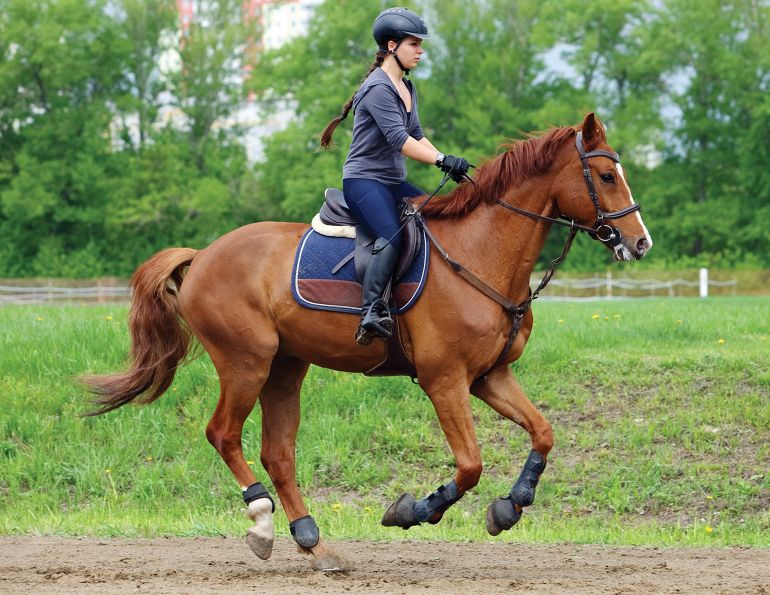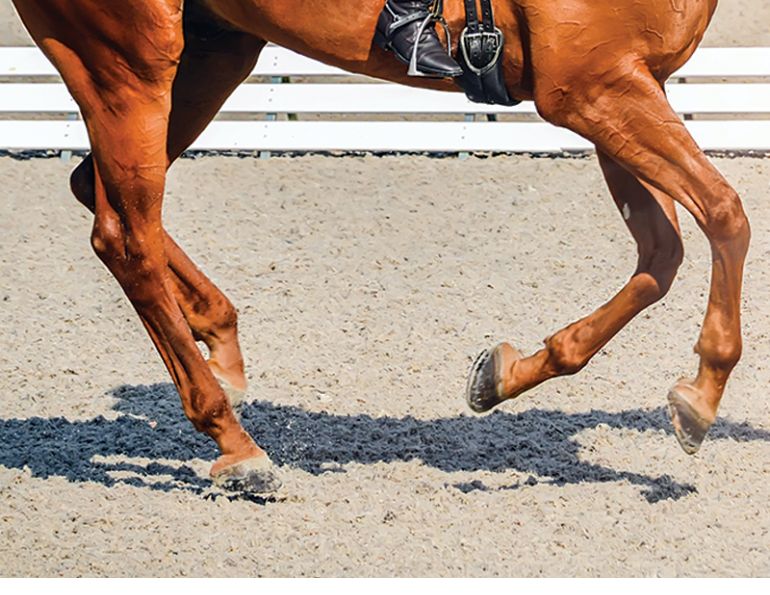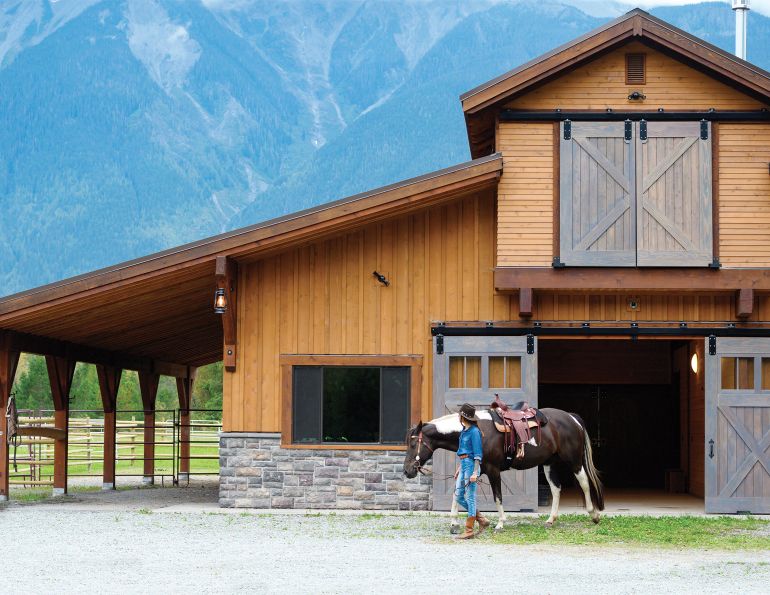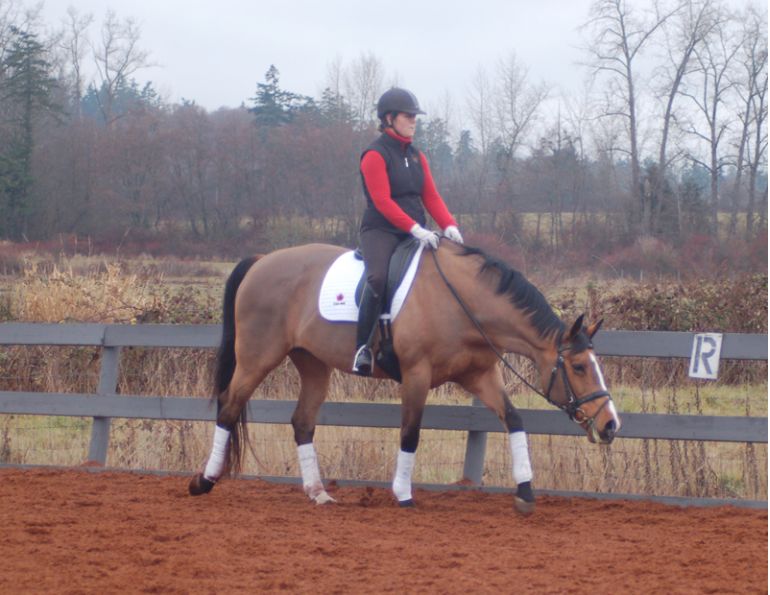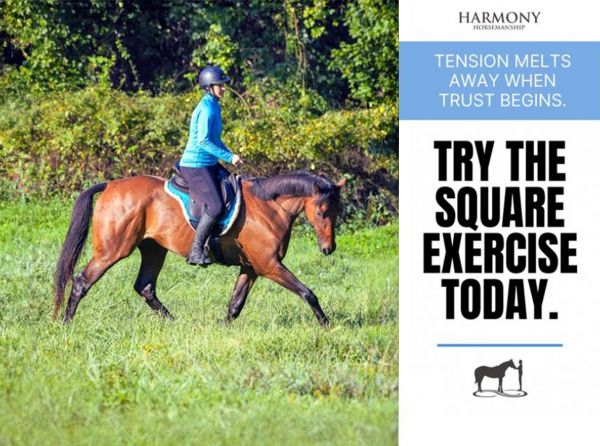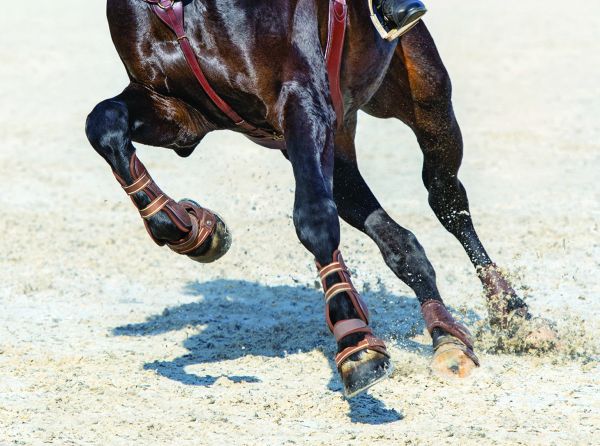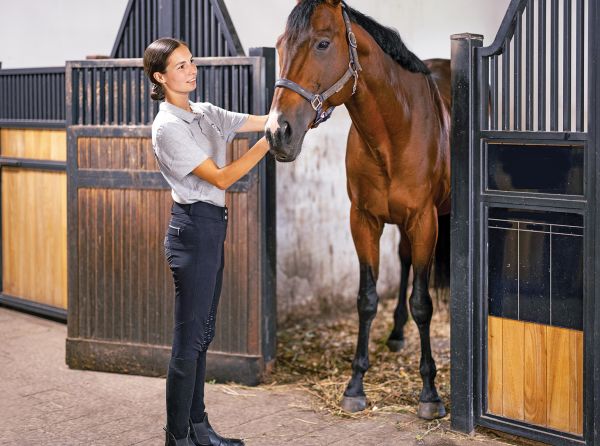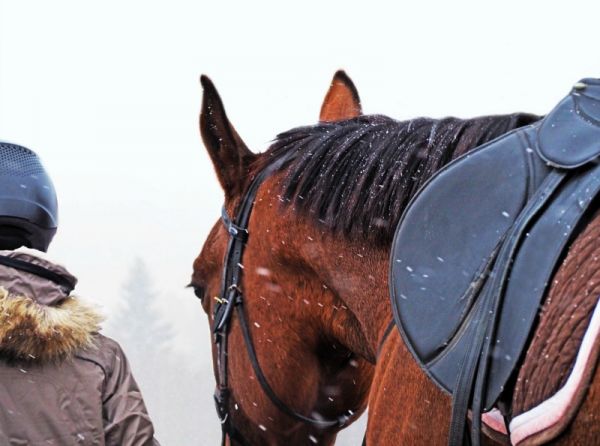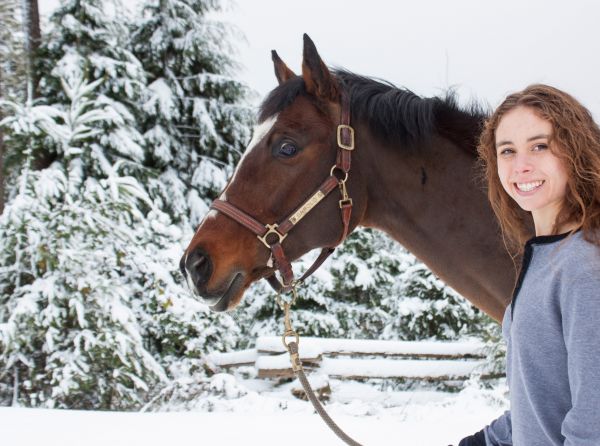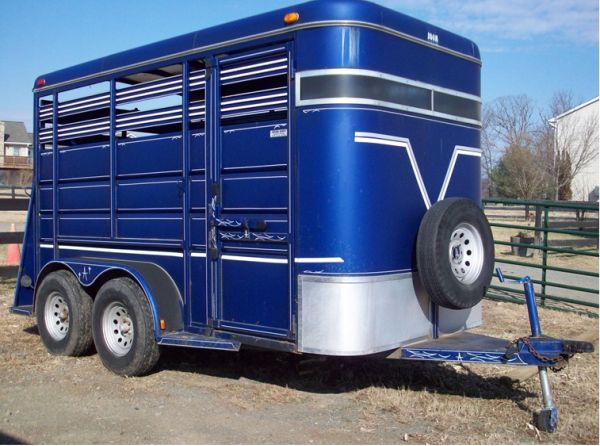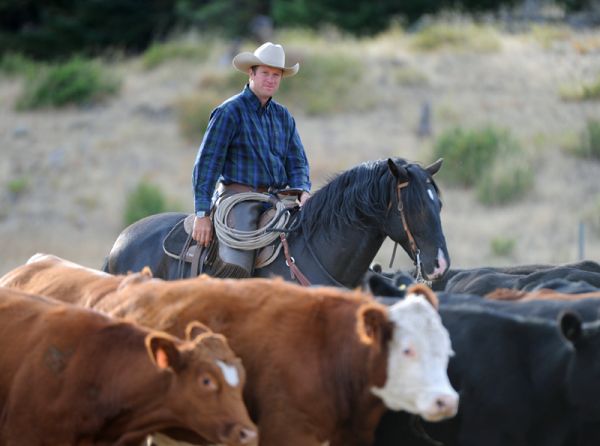By Jane Savoie
Are you sick and tired of doing all the work while your lazy horse plods along without energy? Remember that a horse can feel a fly on his side, so logically there's no reason for him to be dull to your legs.
Here are six steps to put your horse in front of your driving aids:
1. Give a light leg aid - one feather light squeeze with both calves.
2. Your horse must react instantly and eagerly. If he does not, DO NOT adjust your aid by repeating it or making it stronger. If you do, you are letting your horse train you!
3. Instead, correct him by sending him forward. Before you actually correct your horse for a dull or non-existent reaction to your leg, consider his temperament. The easy-going fellow might need a few taps with the whip or a few bumps from your legs to send him forward. But the sensitive soul might only need a brush with the whip to get the same reaction. The point is to get a clearly forward, hot-off-the-leg answer. You do not want to terrorize him. Also, if your horse is the type that bucks when you use the whip, it is better to bump him with your legs instead. First of all, you do not want to get bucked off! In addition, if he bucks, he is obviously not going forward, so he has missed the whole point of why you corrected him.
So, close both of your legs very lightly on his sides to ask for his version of a lengthening. If he does not respond, send him forward for eight to ten strides by tapping with the whip or giving him a couple of bumps with your legs. Keep in mind that at this point all you are looking for is some type of forward reaction. It doesn't necessarily have to be a pretty answer. It is fine if he puts his head up in the air and rushes off. None of those reactions matter in the beginning. Your only goal when you start this process is to get some kind of enthusiastic answer that shows your horse is paying attention to you. While you are sending him forward, maintain a light contact with his mouth, but do not give any rein aids. There is no point in using the reins if he's not thinking forward.
4. RETEST. Once you have chased him forward, go back to a normal working trot. Ask for the lengthening again by RETESTING with a light leg aid. Retesting by closing both calves lightly is the most important step in the entire process. If you do not retest, your horse only becomes duller. That is because you have only taught him to go forward when he feels the whip or kicking. You have not taught him anything about reacting to a light leg aid unless you retest.
5. Accept nothing less than a 100 percent response (99.9 percent isn't good enough!). If his reaction to your legs is better or pretty good but not wholeheartedly forward, repeat the whole process from the beginning until he makes a 100 percent effort.
6. When you RETEST, if he responds by immediately going forward energetically, praise generously. At this point it is still okay if he breaks into the canter when you do the retest. Later on, through repetition and reward, you can explain to him that you just want a lengthening in the trot. But for the moment, ANY forward reaction deserves to be rewarded.
About the Author - Jane Savoie has been long-listed by the USET with several horses, won nine Horse of the Year awards and three National Freestyle Championships, and was the reserve rider for the bronze medal winning U.S. Olympic Dressage Team in Barcelona, Spain. She was the Olympic dressage coach for the Canadian 3-Day Eventing Team in Atlanta in 1996 and Athens in 2004, and coached several top dressage and eventing riders in preparation for the 2000 Sydney Olympics, including team bronze medal winner Sue Blinks. The author of best-selling books That Winning Feeling!, Cross-Train Your Horse, and More Cross-Training, and producer of several dressage training DVDs, Jane is also a frequent contributor to many leading horse magazines and a popular motivational speaker.
Article Source: www.ArticleSnatch.com
Main Photo: Steven Lilley/Flickr





